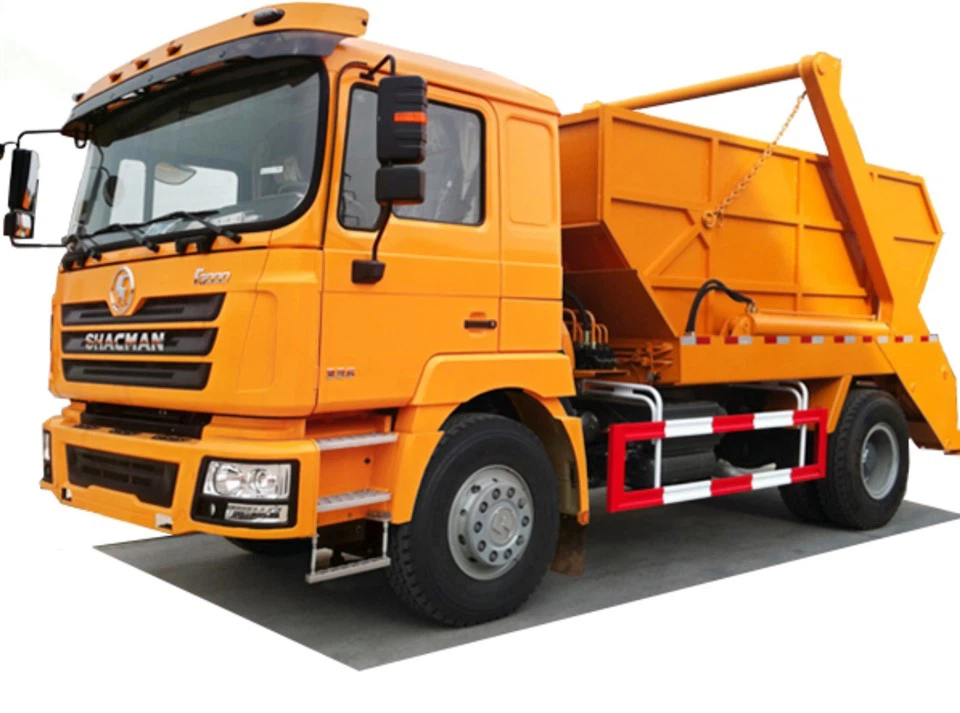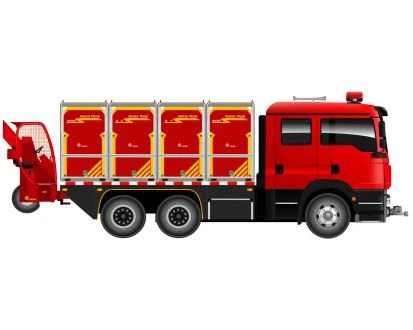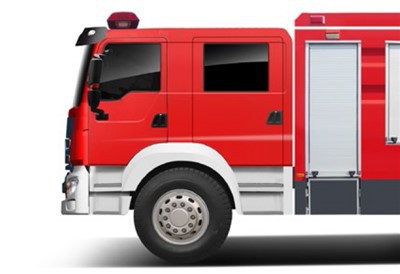Understanding Single Axle Roll Off Trucks: Features, Benefits, and Applications

Single axle roll off trucks are increasingly gaining popularity in various industries due to their efficiency, flexibility, and ease of use. As the demand for waste management solutions grows, these trucks offer an ideal option for contractors, landscapers, and construction professionals. In this article, we will comprehensively explore single axle roll off trucks, highlighting their features, benefits, and typical applications. We will also provide practical tips, examples, and a frequently asked questions (FAQ) section to enhance your understanding.
What is a Single Axle Roll Off Truck?
A single axle roll off truck is a type of commercial vehicle designed to transport and load large containers, also known as roll-off bins or dumpsters, for waste disposal and recycling. The single axle configuration allows for a lighter and more maneuverable truck that can handle various types of debris without compromising on power and performance.
Key Features of Single Axle Roll Off Trucks
- Compact Size: The single axle design makes these trucks smaller and easier to navigate in tight spaces, such as urban environments.
- Lightweight Construction: With less weight, single axle roll off trucks can operate more efficiently, often leading to increased fuel economy.
- Simplicity of Operation: Designed for ease of use, these trucks allow operators to quickly load and unload containers with minimal effort.
- Versatile Applications: Ideal for a range of industries, including construction, landscaping, and waste management.
- Affordability: Generally less expensive than larger roll-off trucks, making them a cost-effective choice for many businesses.
Advantages of Using Single Axle Roll Off Trucks
1. Enhanced Maneuverability
One of the standout benefits of single axle roll off trucks is their enhanced maneuverability. These trucks can easily navigate through tight streets, construction sites, and residential areas, allowing for efficient waste collection in various settings.
2. Cost-Effective Solution
With lower purchase prices and operating costs than their dual-axle counterparts, single axle roll off trucks provide a more budget-friendly option for small to medium-sized businesses. Additionally, their fuel efficiency helps further reduce operational expenses.
3. Environmental Impact
By optimizing fuel consumption and reducing the need for larger trucks, single axle roll off trucks can have a less negative impact on the environment. The lightweight materials contribute to lower emissions and a smaller carbon footprint.
4. Ease of Loading and Unloading
The design of single axle roll off trucks allows for straightforward loading and unloading processes. This efficiency can lead to enhanced productivity for businesses, as operators spend less time on logistics and more time on actual work.
5. Versatility in Applications
Single axle roll off trucks are not limited to just one industry. They can be utilized for general waste disposal, construction debris, heavy materials like concrete, or even recycling purposes. Their versatility attracts a wide range of industries that require effective transportation solutions.
Applications of Single Axle Roll Off Trucks
1. Construction and Renovation Projects
Construction sites generate significant amounts of debris, making single axle roll off trucks essential for efficient waste management. They can handle materials such as wood, metals, and concrete, helping to keep sites clean and organized.
2. Landscaping and Yard Waste Collection
Single axle roll off trucks are ideal for landscaping companies that need to transport soil, mulch, debris, and other yard waste. Their maneuverability allows them to access residential areas with ease.
3. Demolition Work
In demolition projects, the need to handle large volumes of debris is crucial. Single axle roll off trucks can quickly transport rubble and waste, ensuring timely progress on projects.

4. Recycling Operations
The rising trend of recycling places a demand on vehicles that can efficiently transport recyclables. Single axle roll off trucks are perfect for collecting mixed recyclables from various businesses and residential areas.
5. Special Events
For festivals, fairs, or large events, single axle roll off trucks can assist in managing waste and keeping the event area clean. They can be used alongside temporary dumpsters to facilitate efficient waste disposal.
Choosing the Right Single Axle Roll Off Truck

When selecting a single axle roll off truck, consider the following factors:

1. Capacity and Size
Different models will have varying load capacities. Consider the maximum weight and volume your business needs to manage to choose an appropriately sized truck.
2. Engine Power
Look for a truck with sufficient engine power to handle your specific waste materials, especially heavier debris. Pay attention to horsepower ratings and torque.
3. Build Quality
Choose a truck made from durable and corrosion-resistant materials to ensure longevity and reduced maintenance costs.
4. Manufacturer and Warranty
Research reputable brands and check warranty options. A longer warranty can indicate the manufacturer’s confidence in their product quality.
5. Operational Features
Evaluate additional features such as hydraulic systems for easy loading and unloading, safety features, and cab comfort to enhance the driving experience.
Maintenance Tips for Single Axle Roll Off Trucks
Proper maintenance ensures the longevity and efficiency of your single axle roll off truck. Here are key maintenance tips:
1. Regular Inspections
Conduct periodic inspections of the vehicle’s tires, brakes, lights, and hydraulics. Early detection of issues can prevent costly breakdowns later.
2. Fluid Checks
Monitor fluid levels, including oil, transmission fluid, and hydraulic fluids. Regularly change these fluids based on the manufacturer’s recommendations.
3. Cleanliness
Keep the truck clean to avoid rust and corrosion. Regular washing, particularly of the undercarriage, helps extend the life of the vehicle.
4. Record Maintenance History
Maintain a detailed log of all maintenance work done on the truck. This can help identify patterns and predict future maintenance needs.
Practical Examples of Using a Single Axle Roll Off Truck
| Industry | Application | Benefits |
|---|---|---|
| Construction | Transporting debris from renovation projects | Quickly clears site, stays on schedule |
| Landscaping | Collecting yard waste | Efficient removal, easy access to residential areas |
| Recycling | Transporting recyclables to treatment plants | Supports eco-friendly initiatives, enhances community service |
| Events | Managing waste at festivals and gatherings | Maintains a clean environment, meets health regulations |
Frequently Asked Questions (FAQ)
1. What is the average cost of a single axle roll off truck?
The cost can vary widely depending on the brand, model, and features, typically ranging from $30,000 to $80,000.
2. How much weight can a single axle roll off truck carry?
Single axle roll off trucks can typically handle between 10,000 and 20,000 pounds, depending on the specific model and configuration.
3. Are single axle roll off trucks fuel-efficient?
Yes, they are generally more fuel-efficient than larger trucks due to their lighter weight and smaller size.
4. What types of containers are used with single axle roll off trucks?
Commonly used containers include 10-yard to 20-yard roll-off dumpsters for general waste, recycling, and construction materials.
5. Can single axle roll off trucks be used for hazardous waste?
Yes, however, special precautions and containers are required to comply with safety regulations for transporting hazardous materials.
6. How can I ensure my single axle roll off truck lasts a long time?
Regular maintenance, timely inspections, correct operation, and proper cleaning all contribute to extending the life of your truck.
